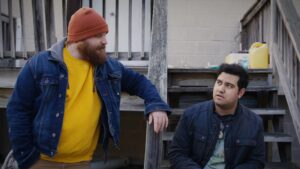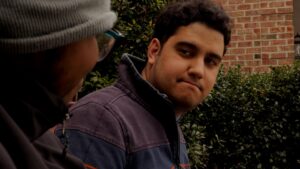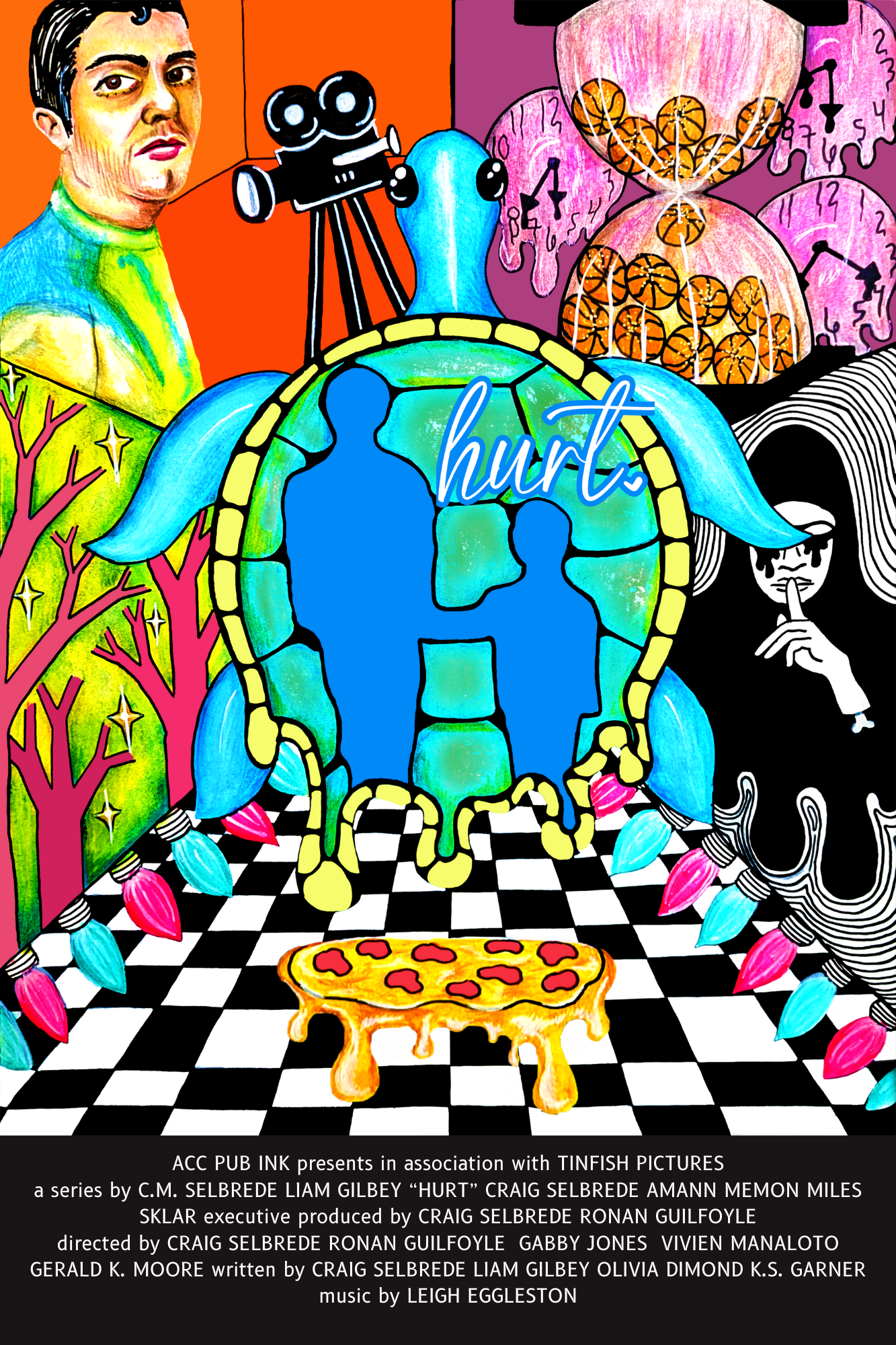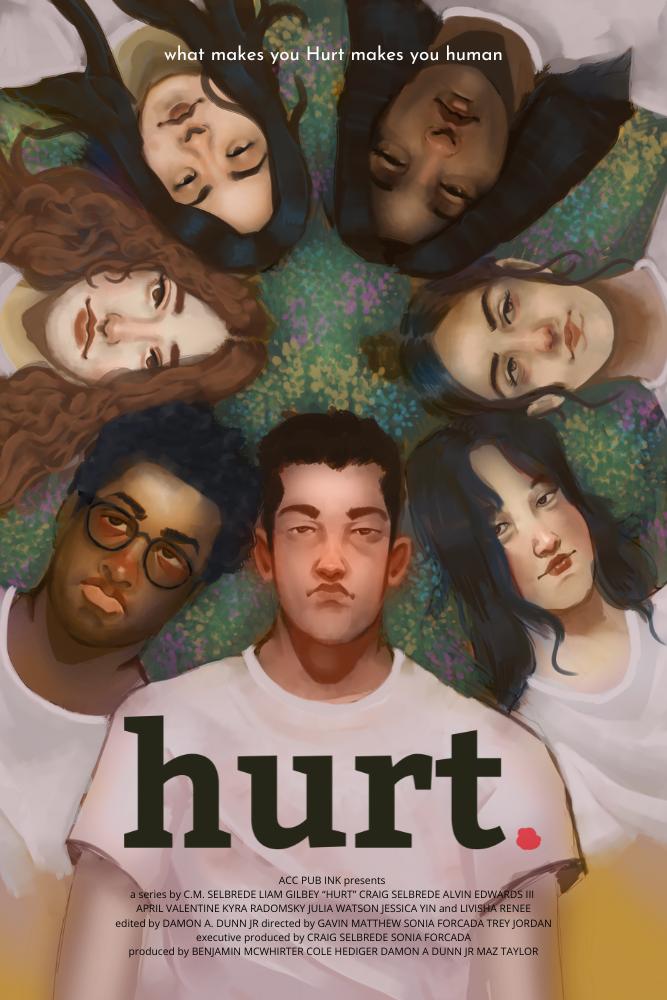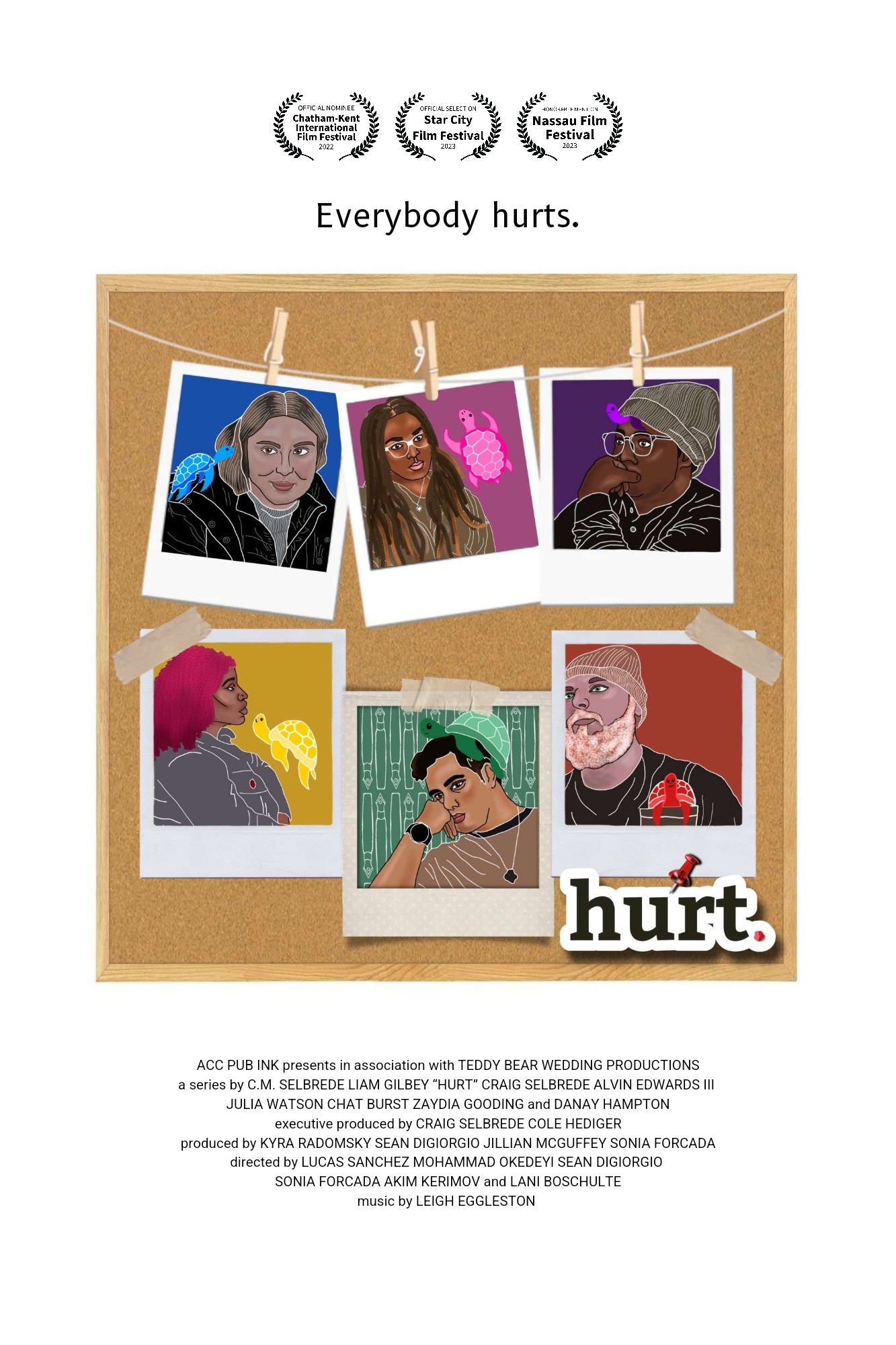
Web Series Review “Hurt: Season 2”
WATCH THE TRAILER HERE
First, the Recap:
By-products of choice. Whenever the events that shape our lives, for good and/or ill, come to a head, there manifests the necessary acceptance and encounters with the ramifications that follow which we must then embrace in order to move forward. FAR easier said than done, however, when the circumstances and changes we face are still causing us struggle, contemplating our path, self-worth, possibilities to succeed or fail, and avoiding those elements of our lives that made the journey harder to cope with from the start. And once again we ask–can or WILL we overcome? Stone (Craig Selbrede) avoided oblivion, yet still finds that he questions and has doubts about it all. Now also facing both a newly-unsettled best friend Griff (Chat Burst), reconnecting with his former friend Finn (Alvin Edwards III), and the potential for much-needed validation of his beloved writing skills, will he manage to find an affirming road to follow–or once more experience the depression he’s had to fight through before?
Next, my Mind:
HIGH degrees of mental health and suicide prevention awareness, dealing with our vices and the tendencies to fall back into them if not carefully considered or addressed, the influence of others on our journeys to betterment or detriment, the willingness to put aside our own battles at times in order to help others in theirs, and the pressing ongoing necessity to ensure these themes ARE seen for the wholly relevant importance they represent for this modern world come to impactful life again through Season 2 of this indie web series from show creator/writer/executive producer/editor Craig Selbrede, directors Lani Boschulte and Muhammad Okedeyi, director/producer/editors Sonia Forcada and Sean DiGiorgio, director/editors Akim Kerimov and Lucas Sanchez, writers Liam Gilbey and Olivia Dimond, producers Jillian McGuffey, Ben McWhirter, and Kyra Radomsky, producer/editor Damon A. Dunn Jr., plus executive producer/editor Nicole Hediger that not only made certain degrees of improvement in overall production quality from Season 1, but ensured that the primary focus of the series remained very effectively intact.
While admittedly there are still some rough spots IN the general production quality of the season (mainly multiple instances of sound editing that causes momentary muffling of dialogue in specific scenes, a few gaffed lines), what stands out with immeasurably deeper significance IS the underlying/foundational narrative structure that centers on Stone’s existence following the traumatic yet revelatory and life-altering/life-SAVING occurrences that events culminated in previously which are now coming back to haunt yet challenge him to at least try to stand firmer in the conviction to not only stay alive, but also extend the magnitude of care he HAS for those closest to him as well. This, of course, becomes a major undertaking that ends up causing conflicts with goals and opportunities he has, the consequences of continued BAD decisions, and how those aforementioned other people who are also trying to help HIM while confronting their own demons is executed. BUT, I absolutely applaud the fact that the season provides adequate explanations and time for ALL of this to be covered with intelligent writing and appropriate, compelling weight.
I recall mentioning from the beginning of my review of Season 1 that we simply CANNOT allow, should NEVER allow, ourselves to let slip away the core messages this series is all about, because if we do, we are doing an utter disservice to those who find themselves genuinely struggling with mental health issues and the devastatingly real results that can happen when not taken seriously or just dismissed as “aww, that’s so sad they’re encountering that”. Just because WE might not be experiencing it (or maybe we can be in our OWN world of denial ABOUT it) doesn’t mean we should cast aside compassion and ability to HELP others. I likewise must give acknowledgement to Selbrede for being so transparent in the notion OF having a major character’s own plights still be explored while ALSO showcasing the precise idea of them being able to ascertain what’s right to do in moments of dilemma when it comes to another person’s suffering, prioritizing that individual’s need over their own, and ideally seeing the results which arise from it.
Other objectives this critic felt were contained within the season’s six episode expanse ranged from how we allow others TO control us, how we sometimes care for others MORE than also needing to face our own issues, the ongoing sense of isolation and loneliness our instability/being unconfident/insecurities bring about, passing immediate judgement vs. fostering inclusion, words without action to back them up being hollow, patterns of addiction and their sway over us, selfishness, crisis of faith, and the resentments we grasp onto to shame/guilt, pushing away those who are truly trying to assist us rather than embracing it, the value of trust, breaking harmful cycles, letting go, leaning INTO what we actually believe in, plus not being DEFINED by our shortcomings but rather how we rise up all get screen time, again with the show’s cornerstone emphasis on depression, suicide, and related mental health topics pulling it all along through the multitude of characters the season gives to us.
As with its inaugural season, Selbrede continues to perform with the same measure of relatability, vulnerability, and “everyman” qualities that he demonstrated before through his role as Stone, a young man with deeply ingrained hurts that came through an initial phase of suicidal mindsets to at least find some sense of purpose, even though it had also cost him a new best friend. Now working, gaining possibilities with his story writing, and at least trying to remain on the straight and narrow, the old habits, self-criticism, and looming doubts about where everything is going again start to dominate him again, only this time it gets waylaid by the additional struggles being faced by a long-standing friend in equal need of help. With everyone else around him, including Sara and Finn, will Stone be able to cope with it all and come out the other side better again? I love Selbrede’s earnestness in how he portrays the character, and it is a performance that keeps eliciting you as the viewer to ROOT for him to persevere.
As with any show, certain primary supporting characters are no longer present, while others have larger/ongoing parts to play and new ones are introduced. Burst has the chance to shine in a much greater capacity this round through his performance as Griff, Stone’s best friend and a man caught up in a storm of drug-and-alcohol-fueled tumult that bleeds over into the relationship he has with his long-standing pal. On his own road to self-destruction, Griff must contend with the ghosts of his past, his uncertain present, and the same questioning of what the worth of life even is. In spite of his carefree yet sometimes abrasive demeanor, Griff is another character you want to push for to get straight, and Burst does an excellent job of portraying these volatilities being shown throughout the season’s episodes. Edwards III makes his own triumphant return to the series as Finn, Stone’s now-former new bestie who’s come out of a very harsh but necessary time in rehab after the events of last season. Now still paying a certain price for his own missteps, including alienation from Stone, he’s on a path to make himself available for his own healing and for others’, too.
Edwards very much brings that urgency and affability to the character again, yet another person we wish to see correct themselves while trying to be the bigger man and reconcile with Stone in addition to becoming one of the unanticipated voices in staunch support of someone he’s actually disliked for a long time. Julia Watson comes back around as Stone’s sister Sara, who as with so many others, has her own stresses and self-deprecating attitudes to ponder and overcome, even as her overt concern for Stone may actually NOT be as healthy for her OR him as she thinks. I enjoy Watson’s energy and the aura of well-intentioned but overly frantic at times nature of the Sara, who also gets a chance at a different kind of fresh start this season as well. Danay Hampton joins this season as filmmaker Noa Combs, who has gotten wind of Stone’s story he’s been writing and feels it would make for a superb short film effort. Wanting to collaborate, it becomes a far more tedious endeavor to try and get Stone’s focus ON the project in lieu of other events that are taking place. Noa is someone else who still finds the means to be of support, however, in Stone’s circumstances.
Zaydia Gooding arrives as Jasmine, Griff’s step-sister who has more than a mildly antagonistic relationship with him, tending to be on the constant attack against his actions and manner than in support of him, which DOES run both ways. However, as she finds the means to form a bond with Noa as the season progresses, it could be a catalyst for a change in mentality all-around. Additional main supporting turns are provided through Trenor Gould as Trevor, a blast from Sara’s past that could spell new chances for both her and him, K.S. Garner as Kelly, a friend of Sara’s who more than tries to be her voice of reason on many an occasion with no hesitations whatsoever, Thomas Wechsler as Griff’s father, who’s spirit torments Griff while he’s attempting to deal with his inner conflicts, plus Bryce Mattson and Thomas Augusto as Sailor and Huntley, Griff and Stone’s friends who really find themselves more on the sidelines of their two friend’s strife and strivings.
So, in total, “Hurt: Season 2” is a visual study in its original facets of how we see ourselves, the monsters of addiction, depression, and suicide, and the need for HELP but also expands on these in painting a picture of how we can get so consummately swallowed up in our pain, projecting it on others instead of directly contending with it, the weight of tribulations, but then the realization of how our own troubles can end up helping others to go through similar things, that following your dreams is never bad, acknowledging who we are and where we come from is a gift, and that true friendships will rebound from all wrongs and become a source of needed strength, resolve, and healing.
STAR RATING (out of 5):
As always, this is all for your consideration and comment. Until next time, thank you for reading!
